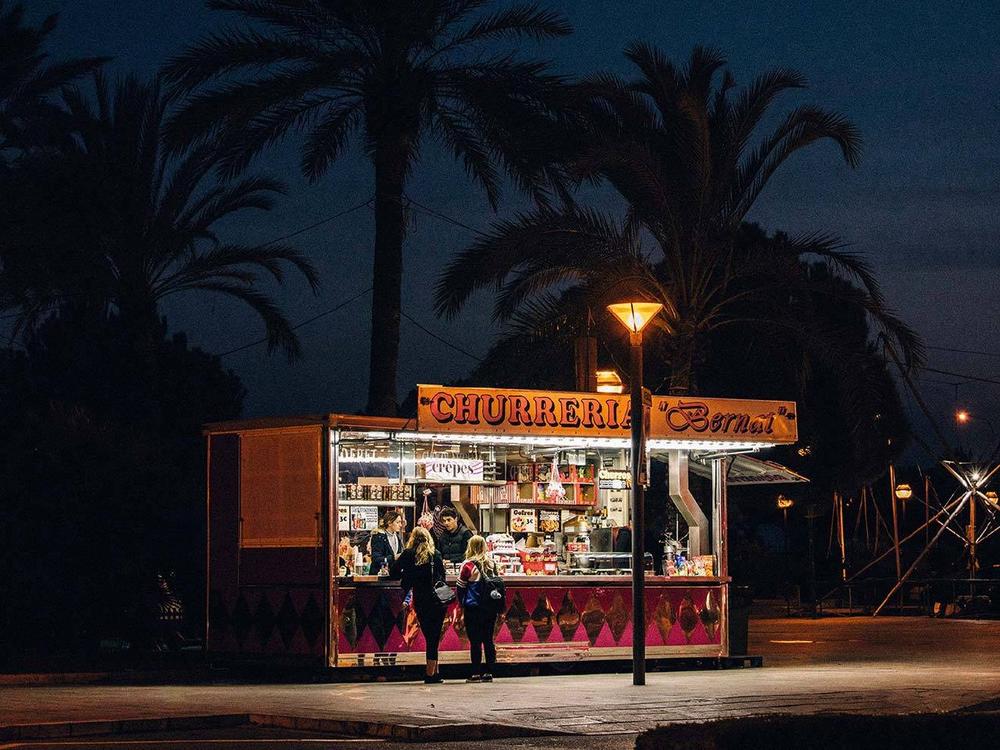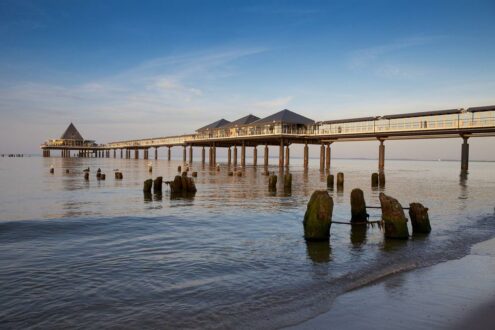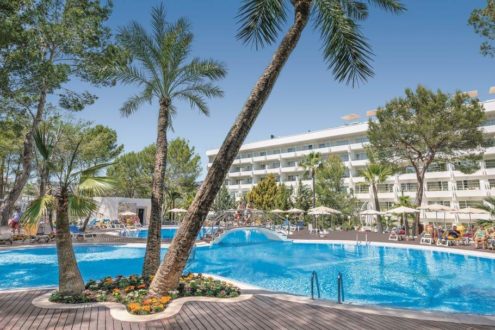
Here for the Neighborhood
With its brick façade and factory casement windows, The Ludlow Hotel blends seamlessly into New York City’s Lower East Side, an area where tenement buildings have been converted into modern apartments and speakeasies lurk behind unassuming shops. Once behind The Ludlow Hotel’s industrial front, marble mosaic floors, an eclectic mix of vintage furniture, and striking original artworks abound—a direct reflection of the creative spirits that permeate this corner of downtown Manhattan. Heading a few blocks west, Kit Kemp’s signature aesthetic at Crosby Street Hotel mirrors the individuality of its SoHo location. Floor-to-ceiling warehouse windows and statement pieces from Kemp’s personal art collection—including a 12-foot cat sculpture by Fernando Botero and a painting by Anselm Kiefer—nod to the neighborhood’s storied lofts and artistic legacies.
Contemporary art and design are also cornerstones of Periscope Hotel and New Hotel in Athens, which were founded by the industrialist and mega art collector Jannou Dakis. At Periscope, bold statements like mechanized installations and lightboxes hanging from the ceiling echo the overarching mood of Kolonaki, the city’s most dazzling shopping district, where neighbors do not shy away from making a statement. Set slightly closer to sights like the Old Royal Palace and Syntagma Square, New Hotel is a "gesamtkunstwerk" by Humberto and Fernando Campana. The brothers ensured nothing from the original 1958 modernist building, formerly the Olympic Palace Hotel, was tossed aside while also giving it a contemporary update—a distinct fusion evident in many parts of the city itself.
At Tokyo’s K5, Japanese tradition meets international perspectives, much like its eastern locale in Kabutocho, which was historically the city’s financial center but has evolved into one of the city’s coolest neighborhoods thanks to its abundance of hip bars, bistros, and breweries. The hotel itself boasts cedar furniture produced by local craftsmen as well as Brooklyn Brewery’s first taproom outside New York City. Meanwhile, Gorgeous George, located in the center of downtown Cape Town, blends Victorian design elements with contemporary custom furniture by local and international designers. Such dichotomies are found throughout the neighborhood, which is home to various outlets that reflect on history while keeping an eye on the future, like the South African National Gallery or even La Colombe, one of the country’s most iconic fine dining establishments that combines local cuisine and ingredients with French flair.
For Stamba Hotel in Tbilisi, the Adjara Arch Group and Rooms Design repurposed a Soviet-era publishing house where former print-drying beams now support foliage, and vintage booths and pendant lamps define the on-site café. This dynamism between modernity and history is seen throughout Vera, the district where the property is located and where contemporary glass and concrete structures rub shoulders with 19th-century mansions. In London, Inhabit Hotel calls a series of six 19th-century townhouses home, and here a unique focus is placed on well-being for both guests and the community. A holistic approach to individual and communal wellness unfolds across every facet of the hotel, from its proximity to Hyde Park and some of the city’s lushest green spaces to partnerships with local social enterprises like The Goldfinger Factory.
Design Hotels™ represents and markets a curated selection of over 285 independent hotels in more than 60 countries across the globe. More than a collection of hotels, the company is a collection of stories. Each property reflects the ideas of a visionary hotelier, an "Original", someone with a passion for genuine hospitality, cultural authenticity, thought-provoking design and architecture. Each "Original" stands for the individual, aesthetic and service-driven experience that his or her hotel provides.
In 2017, Design Hotels™ launched Further, a traveling laboratory for experiential hospitality that transforms hotels across the globe into temporal hubs of thematic exploration. The mission behind Further aligns with the values of the future-facing Promad, a new generation of traveler embracing progressive travel and global nomadism. First identified by Design Hotels™ in collaboration with leading futures consultancy The Future Laboratory, the purpose-driven, self-actualizing Promadic movement is set to shape the future of hospitality.
Founded by Claus Sendlinger in 1993, Design Hotels™ offers its members insightful travel industry knowledge, from market trend consultancy to international sales representation. The company has its headquarters in Berlin and branches in London, Los Angeles, New York and Singapore. In 2019, Design Hotels™ joined forces with Marriott Bonvoy, enabling its member hotels to have both a greater and more selective reach while offering its Community the benefit of the industry’s leading loyalty program.
design hotels AG
Stralauer Allee 2c
10245 Berlin
Telefon: +49 (30) 884940-000
Telefax: +49 (30) 257698-96
http://www.designhotels.com
CFO
Telefon: +49 (30) 8849400-03
Fax: +49 (30) 259330-17
E-Mail: ir@designhotels.com
![]()



